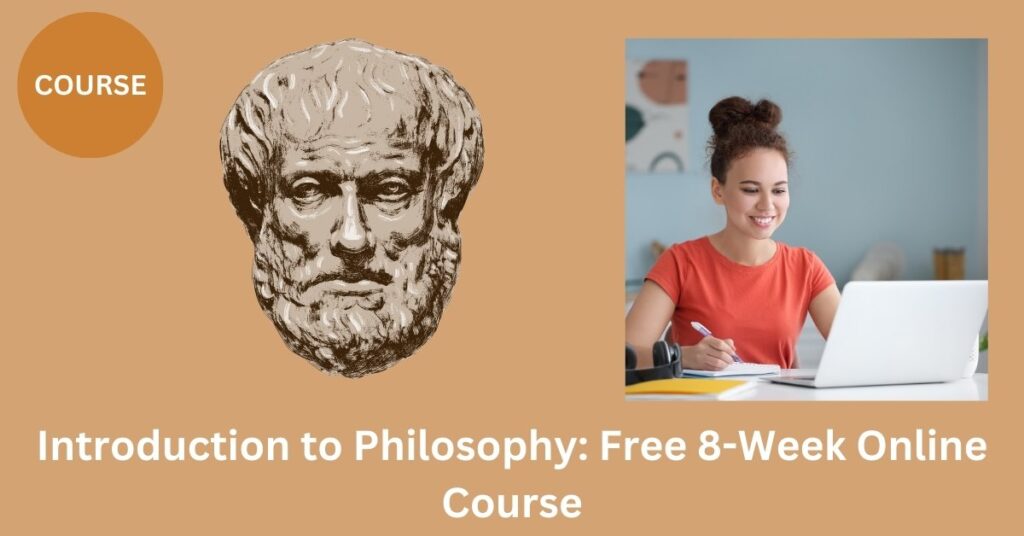Understanding the concept of power dynamics is crucial for those seeking to live a more meaningful life through the study of philosophy, particularly in the teachings of Robert Greene. While many are aware of this important idea, not everyone grasps its significance to Greene’s thinking. By delving into this concept, we can enhance our use of philosophy in pursuit of a fulfilling life. In the following sections, we will explore Robert Greene’s insights, dive into the intricacies of power dynamics, and consider their importance in our philosophical journey towards meaning.
Key features of the views of Robert Greene
Robert Greene, a prominent American author, is widely recognized for his works on strategies, power dynamics, and human behavior. His key features revolve around the principles of strategy and mastery in life, emphasizing practical advice gleaned from historical figures. Greene’s ideas often draw from a wide array of disciplines, including philosophy, psychology, and military strategy, to provide readers with tools for achieving success and influence. In works like “The 48 Laws of Power,” Greene outlines strategies for gaining and maintaining power, often examining historical examples of both success and failure. He writes with the belief in a realistic and pragmatic approach to human nature, suggesting that understanding the motivations and behaviors of others is crucial to navigate social landscapes effectively.
Another significant feature of Greene’s views is the idea of embracing life’s challenges as opportunities for growth. Through his emphasis on building and refining skills, as elaborated in “Mastery,” Greene encourages individuals to pursue their passions with dedication, arguing that mastery is a long-term process requiring patience and resilience. His exploration of timeless truths and ancient wisdom seeks to provide a framework for readers to apply to modern situations, making his insights relevant across different contexts and eras.
The idea that the ebb and flow of power is all-important
The philosophical concept of the ebb and flow of power emphasizes the dynamic and ever-changing nature of power within both relationships and societies. This ideology asserts that power is not a static entity but is continually shifting and redistributing as individuals and groups interact. In relationships, this fluidity of power manifests through negotiation, adaptation, and the evolving needs and desires of those involved. Each participant in a relationship can experience moments of dominance or subordination, reflecting their ongoing transition through various phases of influence.
Similarly, in society, power is seen as a transforming force, where its balance is constantly altered by socio-economic, political, and cultural currents. As societies develop, the structures of power are reevaluated and redefined, shifting the landscape of authority and control. This ongoing transformation is often fueled by a myriad of factors such as technological advancements, shifts in collective consciousness, and changes in the cultural ethos, all of which play a crucial role in determining the nature and direction of societal power constructs.
This perspective on power views its ebb and flow as integral to the progression and evolution of human interaction and collective existence. It respects the complexity and nuance inherent in understanding how power moves, adjusts, and reconfigures itself in different contexts, underscoring the intrinsic interconnectedness and interplay between power dynamics and the lived experience of individuals and communities.
Contrasting views
There are philosophers who object to or reject the notion that power dynamics are important in human interactions. They argue that power dynamics can lead to inequality, abuse, and the suppression of individual autonomy. These philosophers emphasize alternative values and principles that they believe should guide our interactions instead. Here are a few reasons why some philosophers take issue with the importance of power dynamics:
- Ethics of Care and Cooperation: Some philosophers emphasize the importance of care, cooperation, and mutual support in human relationships. They argue that focusing on power dynamics can undermine these values by promoting competition, manipulation, and exploitation. Instead, they advocate for a more compassionate and egalitarian approach that values empathy, empathy, and collaboration.
- Critique of Hierarchies: Many philosophers who reject the emphasis on power dynamics critique hierarchical structures and systems that perpetuate inequality. They argue that concentrating on power dynamics reinforces oppressive structures and fails to address the underlying social and economic injustices that contribute to power imbalances. Instead, they advocate for dismantling hierarchies and promoting social justice.
- Emphasis on Dialogue and Deliberation: Some philosophers believe that prioritizing power dynamics can stifle open dialogue and hinder meaningful deliberation. They argue that focusing on power dynamics can create an environment where the goal becomes asserting dominance rather than engaging in genuine exchange of ideas. Instead, they emphasize the importance of fostering inclusive and respectful conversations that allow for diverse perspectives to be heard and understood.
- Concerns about Instrumentalization: Philosophers who object to the importance of power dynamics raise concerns about the instrumentalization of relationships. They argue that when power dynamics are emphasized, relationships can become transactional, based on manipulation and exploitation for personal gain. Instead, they advocate for relationships based on trust, authenticity, and respect for individual autonomy.
It is important to note that these objections to the importance of power dynamics do not negate the existence of power imbalances or the need to address them. Rather, they highlight alternative perspectives and values that prioritize equality, cooperation, and ethical considerations in human interactions.
The place of power dynamics in the thinking of Robert Greene
- Understanding Power Dynamics in Human Nature
Robert Greene emphasizes the importance of recognizing and understanding power dynamics as intrinsic components of human nature. By studying how power ebbs and flows within society, one gains insight into the motivations and behaviors of individuals. This understanding is crucial because it allows individuals to navigate complex social structures and anticipate the movements of power around them. Greene believes that by being aware of these dynamics, people can harness them to their advantage, exercising influence and control when necessary. This understanding demystifies the forces at play in social interactions, ultimately leading to more strategic and successful engagements. The awareness of power dynamics is not about manipulation but about cultivating a conscientious approach to interpersonal and societal relations, ensuring that one is not blindsided by unforeseen shifts.
- Strategic Thinking and Decision-Making
Greene’s exploration of power is closely intertwined with the art of strategy. His works suggest that a deep appreciation of the fluctuation of power allows individuals to think strategically about their actions and decisions. It encourages foresight and planning, ensuring that one remains a step ahead in various social and professional arenas. Understanding this ebb and flow is akin to mastering a chess game, where each move is calculated based on potential future outcomes. Strategically thinking in terms of power dynamics leads to more effective decision-making, helping individuals adapt to changing circumstances while maintaining their objectives. By integrating this strategic mindset, individuals can navigate conflicts, negotiate favorable outcomes, and sustain personal and professional growth.
- Enhancing Personal Growth and Self-Awareness
The notion that power shapes relationships and society profoundly impacts personal growth and self-awareness. Greene argues that by acknowledging how these elements influence one’s life, an individual can achieve greater self-awareness. This recognition allows individuals to identify their position in various hierarchies and understand how they can shift these dynamics to foster personal development. Power dynamics inevitably shape an individual’s environment, and by becoming more aware of them, a person can identify areas for improvement and cultivate resilience. Furthermore, this understanding fosters empathy, as it highlights the struggles and ambitions inherent in others, ultimately leading to deeper human connections and a more nuanced perspective on life’s challenges.
- Influencing Cultural and Social Change
Greene posits that those who grasp the ebb and flow of power are better equipped to influence cultural and social change. This perspective is vital in understanding how leaders and movements can effect long-lasting change in societies. By recognizing the undercurrents of power, individuals can effectively challenge existing paradigms and introduce new ideas. This understanding allows them to rally support, build alliances, and drive initiatives that resonate with a larger audience. The recognition of power’s fluidity reveals opportunities for change that might otherwise be obscured by the status quo. Consequently, Greene’s perspective encourages proactive engagement with societal structures, empowering individuals to actively participate in shaping the future.
Greene vs. Rousseau
The acceptance of the philosophical idea that the ebb and flow of power affects relationships and society serves as a pivotal differentiation between the views of Robert Greene and those of Jean-Jacques Rousseau. Rousseau, a prominent philosopher of the Enlightenment era, posited that humans are inherently good, and he emphasized the corrupting influence of society and civilization on this natural goodness. In contrast, those who accept the power dynamics that Greene describes, view social interactions as driven largely by strategic manipulation and the pursuit of dominance. Rousseau’s social contract theory underscores a collective agreement to form societies that prioritize communal well-being over personal gain, which fundamentally contrasts with the notion of power flux being central to relationships. While Rousseau advocated for equality and freedom as pathways to a just society, Greene’s philosophy acknowledges the enduring influence of power struggles, where individuals navigate relationships not just for mutual benefit, but often with an intentional calculation to maintain or shift power balances. This distinction characterizes a significant divergence in the understanding of human nature and societal structure, reflecting the broader ideological spectrum that influences human interactions and the governance of societies. By focusing on the impact of power dynamics, those aligned with Greene perceive society through a lens of strategic foresight and maneuvering, whereas Rousseau’s perspective leans towards an idealistic view of communal harmony and egalitarian principles.
Greene, power and the quest for a meaningful life
Reflecting on the views of Robert Greene, whether you agree with his perspective on the importance of power dynamics or not, is of practical importance as you work on developing your philosophy of life. Understanding different viewpoints allows you to broaden your perspective, challenge your assumptions, and develop a more well-rounded understanding of the world.
Considering the significance of power dynamics in your philosophy of life can have practical implications in various aspects of your personal and professional growth. Here’s why:
- Navigating Relationships: Recognizing power dynamics can help you navigate relationships more effectively. Understanding the power dynamics at play can allow you to approach interactions with empathy and awareness. It enables you to navigate complex social situations, manage conflicts, and build healthier and more balanced relationships.
- Empowerment and Agency: Acknowledging power dynamics can empower you to take control of your life and make informed decisions. By understanding power structures, you can identify opportunities for personal growth, challenge oppressive systems, and advocate for yourself and others. This awareness helps you navigate challenges, assert your needs, and strive for a more equitable and fulfilling life.
- Achieving Goals: Incorporating an understanding of power dynamics into your philosophy of life can also enhance your ability to achieve your goals. Recognizing the power dynamics within your chosen field or industry can help you identify opportunities, build influential networks, and navigate professional hierarchies. This knowledge enables you to make strategic decisions, leverage resources, and position yourself for success.
- Creating Positive Change: Reflecting on power dynamics can inspire you to work towards creating positive change in the world. By understanding how power operates, you can identify injustices, advocate for marginalized communities, and work towards creating a more equitable society. This awareness empowers you to challenge the status quo, foster inclusivity, and contribute to the betterment of your community.
In conclusion, while you may not fully agree with Robert Greene’s view on the importance of power dynamics, reflecting on his perspective and considering the practical implications can help shape your philosophy of life. By understanding power dynamics, you can navigate relationships, empower yourself, achieve your goals, and contribute to positive change. Embracing different viewpoints expands your understanding of the world and equips you with the tools to navigate life’s complexities with wisdom and discernment.


